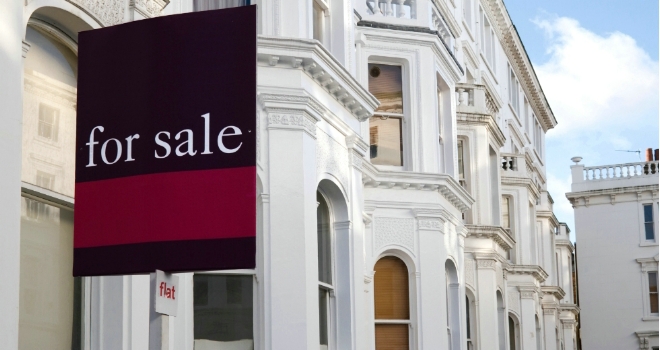
"Coupled with the remortgaging crunch, it's no wonder buy-to-let landlords are thinking about exiting the market in droves"
Coupled with the potential rise in interest rates in May 2018, many landlords are being forced to reassess their priorities and consider selling property to minimise the effect on their income.
This, combined with the expiry of the flurry of two-year fixed-term mortgages set up just before the government made changes to stamp duty, means numerous landlords must now compete in a market where profits are shrinking and lending criteria has been significantly tightened.
Nearly two thirds of the landlords surveyed are considering selling at least one property, with 1 in 9 considering selling all their properties, and just under 1 in 10 already actively selling.
Surprisingly, almost 20% of landlords haven't looked into the reduction, the news of which could provide a nasty shock when they come to complete their tax returns for 2017-18.
Could rents rise?
Home ownership has continued to fall over the past 10 years, as has the availability of social housing. To make up for demand, private rents have stepped in. As the cost of mortgages rise and landlords become progressively unable to offset mortgage interest, something must give. In many cases, rents will rise, but landlords will also be gradually leaving the market, particularly those who have between one and three properties. These landlords make up around 60% of the market.
This tax on mortgage interest does however benefit company landlords, as they can still offset it as a business cost. As a result, more landlords will move to a limited company structure despite the additional complications this can cause in terms of accounting and financial liability. More than 27% of homes in London are currently owned by company landlords, and this number looks set to increase.
While company landlords are still subject to the 3 per cent additional rate of stamp duty when buying a home, they can offset that additional rate against capital gains should they wish to sell in the future. It's worth noting that the capital gain would be taxed at 18 per cent or 28 per cent, depending on their precise circumstances.
Non-company landlords currently face higher fees on borrowing and a 20 per cent tax must be paid on profits, and there is an additional 7.5 per cent dividend tax for basic-rate taxpayers when withdrawing more than £5,000 from the company. For higher-rate taxpayers, this rises to 32.5 per cent, and it's 38.1 per cent for additional-rate taxpayers.
Are homeowners affected by interest rate rises?
The propertypriceadvice.co.uk research showed that homeowners were more confident than landlords that they could afford their mortgages, with 57.5 per cent saying that they were very confident they could afford a modest rise in interest rates. However, just over 12 per cent indicated that they weren't confident or were struggling already.
Fixed-rate mortgages were preferred by both landlords and homeowners, accounting for 58.5 per cent of homeowners and 40.3 per cent of landlords. However, 27.4 per cent of landlords had interest-only mortgages, more than twice as many as homeowners.
The recent increase in stamp duty has also forced many by-to-let landlords to reconsider their retirement plans, with more than a quarter no longer buying new properties as a result.
Peter Sherrard of propertypriceadvice.co.uk, had this to say: "The pressure continues to mount on buy-to-let landlords, who provide vital housing options for renters throughout the country. Coupled with the remortgaging crunch, it's no wonder buy-to-let landlords are thinking about exiting the market in droves.
The current tax relief regime means that, unlike for any other investment, landlords are only able to claim tax relief on a percentage of their mortgage interest – in April, this will drop from 75 per cent to 50 per cent. However, because this only applies to individuals, companies that deal in property can fully offset their expenses.
This change can also push basic-rate taxpayers into the higher-rate bracket, as their mortgage interest suddenly counts as income."





